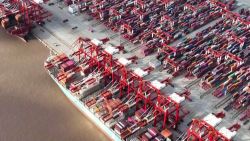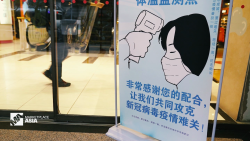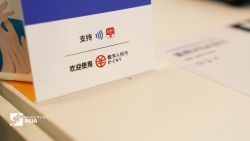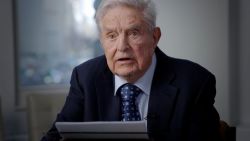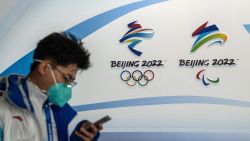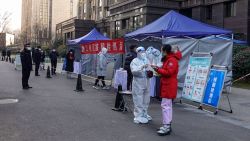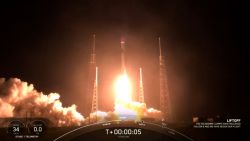Remarks made by US President Donald Trump may have strengthened China’s hand in fighting a US extradition request for detained Chinese telecoms executive Meng Wanzhou, according to Canada’s top diplomat in Beijing.
Meng, chief financial officer of Chinese tech giant Huawei, was arrested by Canadian authorities acting on behalf of the United States in Vancouver on December 1.
The US government alleges that Meng helped Huawei dodge US sanctions on Iran and has indicated it will file a formal extradition request by the January 30 deadline.
The Chinese government has repeatedly and furiously called for her release, labeling the charges political.
Speaking at press conference in Beijing, Canadian Ambassador John McCallum appeared to hint at strained relations between the US and Canada over the continued fallout from case.
“I think she has quite good arguments on her side,” said McCallum. “One, political involvement by comments from Donald Trump in her case. Two, there’s an extraterritorial aspect to her case, and three, there’s the issue of Iran sanctions which are involved in her case, and Canada does not sign on to these Iran sanctions.”
Chinese Foreign Ministry spokeswoman Hua Chunying said Thursday the case against Meng had “never been a normal legal case.”
“We have noted Ambassador McCallum’s remarks. I think anyone with normal judgment can see through this issue. We hope the Canadian side will do so as well and make a correct choice,” she said at her daily press briefing.
Since Meng’s arrest, China has detained two Canadians on suspicion of “activities that endangered China’s national security.” Another Canadian was sentenced to death after a Chinese court convicted him of drug smuggling, prompting Canada to issue a travel warning to its citizens over “the risk of arbitrary enforcement of local laws” in China.
McCallum said relations had been strong between Ottawa and Beijing before the arrest, adding he knew it had “angered China.”
“I know this has angered China but we have a system of extradition treaty a system of rules of law which are above the government, the government cannot change these things,” he said.
US President Donald Trump complicated the situation in December by suggesting he may intervene in the legal saga if it would help his pursuit of a trade deal with China.
“If I think it’s good for what will be certainly the largest trade deal ever made — which is a very important thing — what’s good for national security — I would certainly intervene if I thought it was necessary,” Trump told Reuters.
That helped fuel the widely held view in China that Meng’s arrest was a political move by the Trump administration to gain leverage in the clash between the two countries over trade and technology rather than a law enforcement matter.
At the time, Canadian Foreign Minister Chrystia Freeland reprimanded Trump. “Our extradition partners should not seek to politicize the extradition process or use it for ends other than the pursuit of justice,” she said.
On Wednesday, Canadian Prime Minister Justin Trudeau said he was committed to making sure “that the rule of law is properly and fully followed,” adding that would include the opportunity for Meng “to mount a strong defense.”
When pressed on the ambassador’s comment, Trudeau said his government would ensure the independence of Canada’s justice system was “properly defended and properly supported.”
McCallum’s comments were met with dismay in parts of Canada, however, with Canadian conservative opposition leader Andrew Scheer calling for the ambassador’s dismissal.
“We can’t on the one hand go and defend our actions to the Chinese government by saying these decisions are made at arms length … if then on the other hand the government is using our ambassador to China to interfere in the process to obtain a desired outcome,” Scheer told CBC on Wednesday.
CNN’s Steven Jiang, Paula Newton and Carly Walsh contributed to this article.





